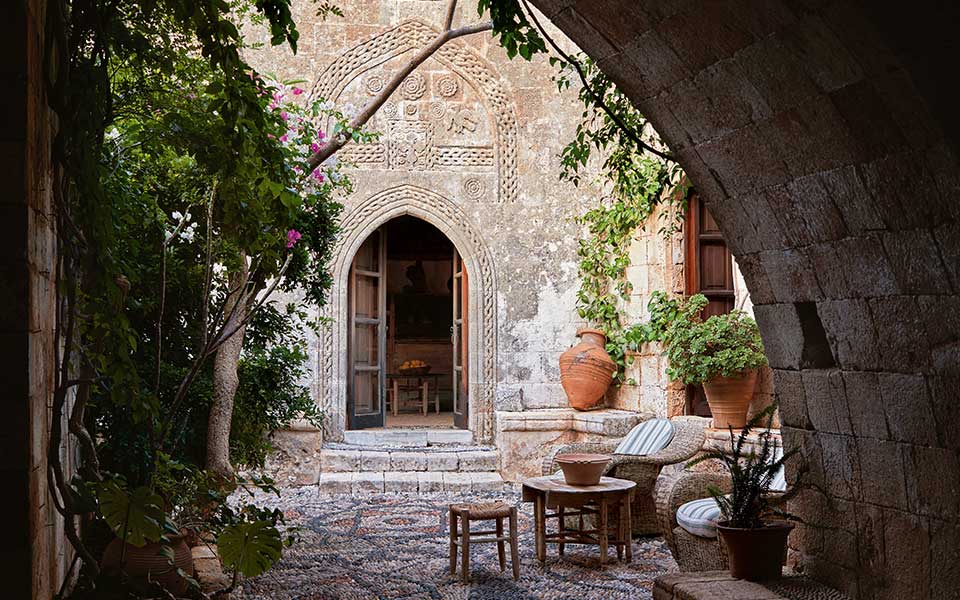Flipping through the book Hautes Bohemian Greece (Vendome Press) by Argentinian photographer, and self-confessed Hellenophile, Miguel Flores Vianna, one is stunned by the sense of overwhelming beauty that haunts its pages. Having captured some of the finest houses of our homeland, he offers readers access to private spaces of immeasurable elegance, with charming echoes of Greek history. In Lindos, Ampelakia in Thessaly, Mount Pelion, the islands of Lesvos and Hydra and elsewhere, he has been able to locate residences that have poignant stories to tell about the past. This may be partly because the current owners have respected the traces of those who lived there before them, in the same living rooms, kitchens, bedrooms and backyards. Yet another luxury volume, one might think, about affluent owners who purchased or inherited retreatsaway from the tourist trail. Or even worse: another luxury volume for hungry eyes that want to devour photogenic spaces they will never be able to see in person.
And yet, the inner stimulus that drove the Argentinian to these Homeric shores is something very different. He first traveled to Greece as a teenager and to this day still spends at least a month every summer here because, he says, the country and its people make him feel at home. And to thank us, he created a book about Greek homes that radiate warmth, hospitality and openness, whose charm is not a product of their elegant objects or the cosmopolitanism of their inhabitants, but rather of the unique aura that makes one fall in love with them upon crossing their threshold. It is a tribute to another era perhaps; an era when beauty, bathed in Greek light, imbued the soul with healing properties, rather than hunger. “K” magazine reached out to Miguel to find out about his life and his beautiful adventure in Greece.
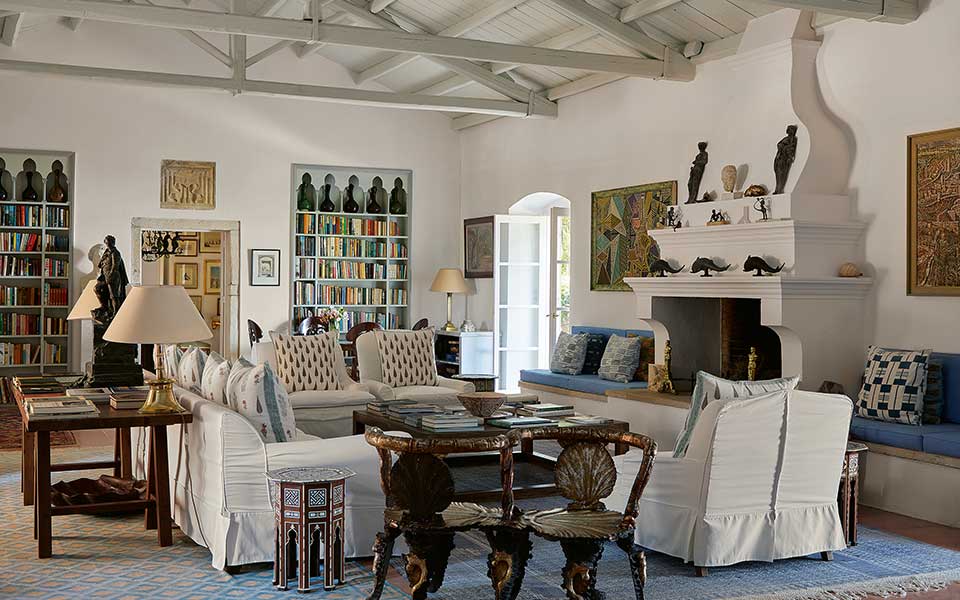
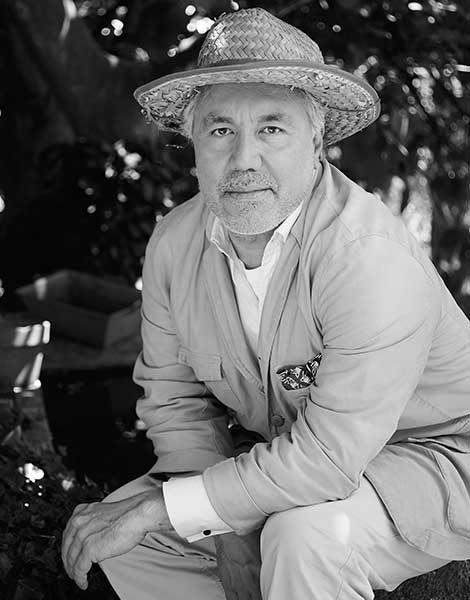
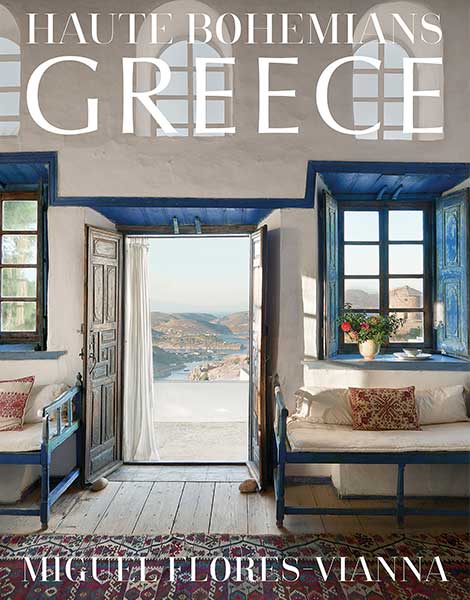
Miguel’s Greece
“I did not want to publish yet another book about wonderful summer homes in Greece. There are plenty of those available already, most of the books published about Greece are like that. So, I avoided this trap because I was interested in portraying houses that not only were alive all year round, but also, in their own way, managed to trace the amazing cultural and architectural wealth of the country, from North to South, and East to West. Everyone knows about the glory of classical antiquity, but they are not aware of the many vicissitudes that this country has gone through during its history, which I too discovered in depth while doing research for this book.
Perhaps I started this photographic project because I feel at home in Greece. In the summer, I can hear people talking on their terraces, just like they do in Argentina, and I get nostalgic because I have been living permanently in London for years now. In Greece, people are out all day until late at night and their home is a kind of Ithaca to which they eventually return. However, it is an Ithaca they share with their loved ones and friends, and this moves me deeply. This is something that also comes through in the book and it goes beyond mere aesthetics: the warmth, the genuine hospitality of Greek homes.
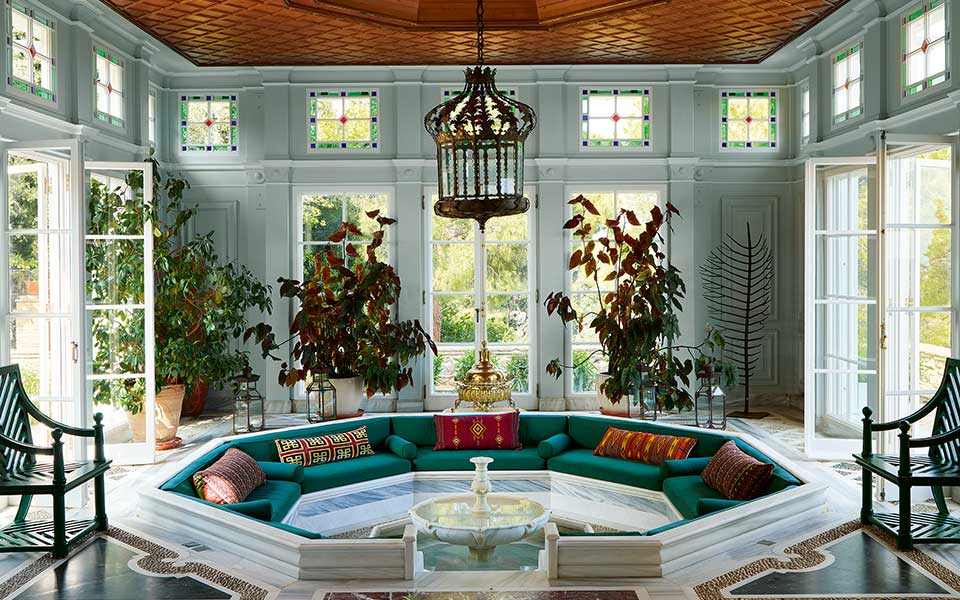
“My relationship with your homeland goes back to my early childhood. My father – whose family was originally from Andalusia, and they emigrated to Argentina over 100 years ago – was a doctor. My mother was a first-generation immigrant with Portuguese and Catalonian roots. Although they were from different backgrounds, they shared a great interest in travel and other cultures.
As an only child, I grew up listening to their tales of different places and my father would always point out each country on the globe we had at home. You know, in a way Argentina and Greece are similar because both peoples have a sense of existing on the margins of the western world, away from London, Paris, or New York, so travelling is what connects them to others. Taking a trip to the United States or to Europe for the first time is a rite of passage for teenagers in my country, so I grew up wanting to get away, something which I have been doing ever since.”
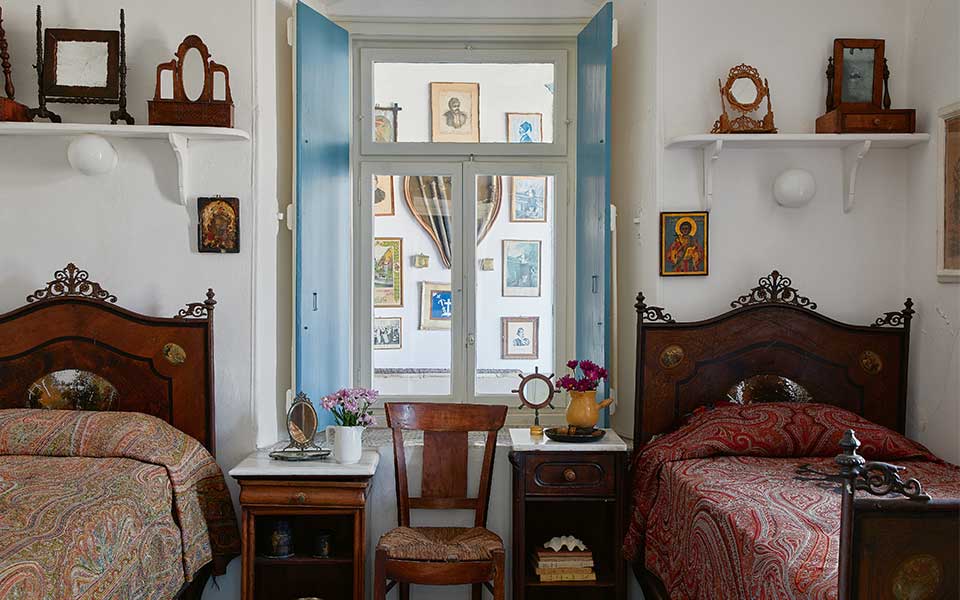
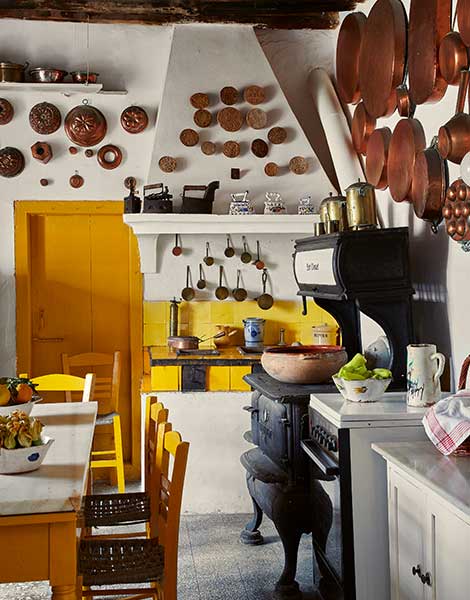
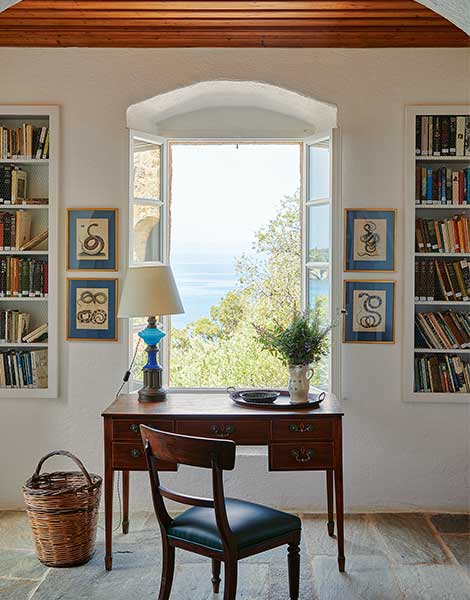
The oracle of Pythia
“Both my parents had visited Greece; in fact, my father had an intense experience there that defined his life. He studied medicine in France, specializing in hand surgery, but at the end of his studies he started having second thoughts about practicing medicine. At that time, he and my mother went on a road trip to Delphi, and they found an ancient fragment in the archaeological site. They returned it to the keeper, and he was so surprised by this gesture that he took them to a warehouse filled with fragments, many of which, strangely enough, were the broken fingers or hands of statues.
My father was so moved to see them that he decided to continue with his profession. He would say that the “Navel of the World” brought him closer to his science. My mother, who had had Borges as a teacher, had studied classical literature and knew ancient Greek. The funniest story, however, is that at one point they bought an Evzone uniform for me to wear on Halloween. I was three years old, dressed like an evzone, and this made a huge impression on my fellow countrymen, who had no idea what that was.
The first trip I took with friends, as teenagers, in December 1980, was to Athens and I still remember watching Apocalypse Now at “Ideal” cinema. The second time I visited Greece, in 1986, I spent the entire summer there. I went to Mount Athos, Meteora and Patmos, which was then untouched by tourism. I had a terrible adventure while in Athens. I had gone toFilopappou Hill for a run, and I saw a huge rock. I decided to climb it, as rock climbing was one of my favorite hobbies. In the middle of climbing the rock with my bare hands, I realized that I would not be able to secure a grip in order to get to the top. I froze up and began screaming for help. But there was no one there to hear my cries, in the middle of the summer. Fortunately, some German tourists who were taking photos using a telephoto lens saw me hanging off the rock from a distance and came to my rescue! In the end, the police came from the other side of the rock, tied a rope around my waist and pulled me up. On one hand, I was happy to be safe; on the other hand, I thought: “Oh my god, I am going to get arrested for my stupidity.” But as soon as I landed on solid ground, I heard approximately 15 policemen break into applause. Not only that, but because they thought I had tried to commit suicide, they kept me company in the station for hours. They ordered me food and were very kind to me. The story made the front page of the Apogevmatini newspaper, and I still have the clipping. It is for these, and many other reasons, that I love Greece and the Greeks. It is not only the beauty of the landscape that makes you fall in love with this country, but also the people, who are unique and make you feel amazing.”
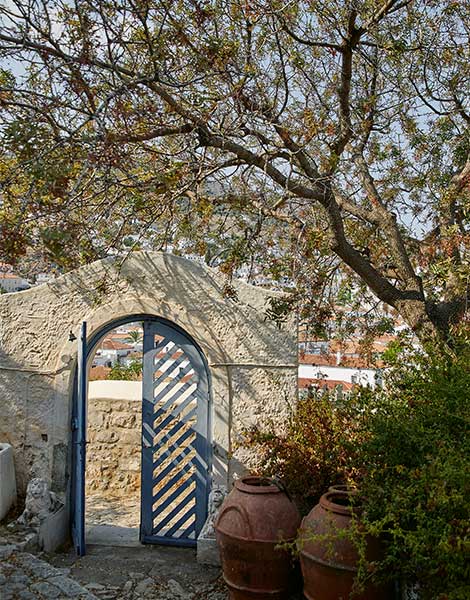
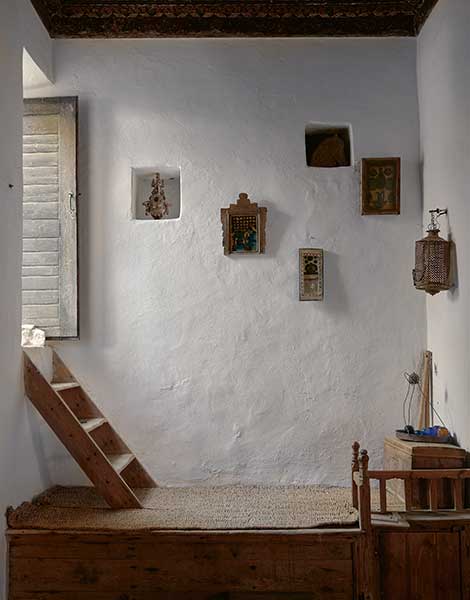
Owners-guardians
“My first book, Haute Bohemians, features houses that belong to architects, fashion designers, art historians, collectors, artists, ceramists, and writers from all over the world. I was interested in tracing their personal taste, the small universe they create using artworks, furniture, and objects, their lived spaces. I decided to dedicate my second book, Haute Bohemians Greece, to Greece itself. Every year I spend a month and a half at Hydra, where I find time to reflect and decompress. The publication is a tribute to your homeland.
“In order to decide which houses to include, I conducted lots of research and got information by word of mouth from friends and acquaintances; that opened the way for me to discover so many amazing places. My main criterion was not the things they contained, the furniture or the objects; I wanted the houses I would photograph to have an aura of the history of either the country itself or the owners, past and present. That was my main motivation.
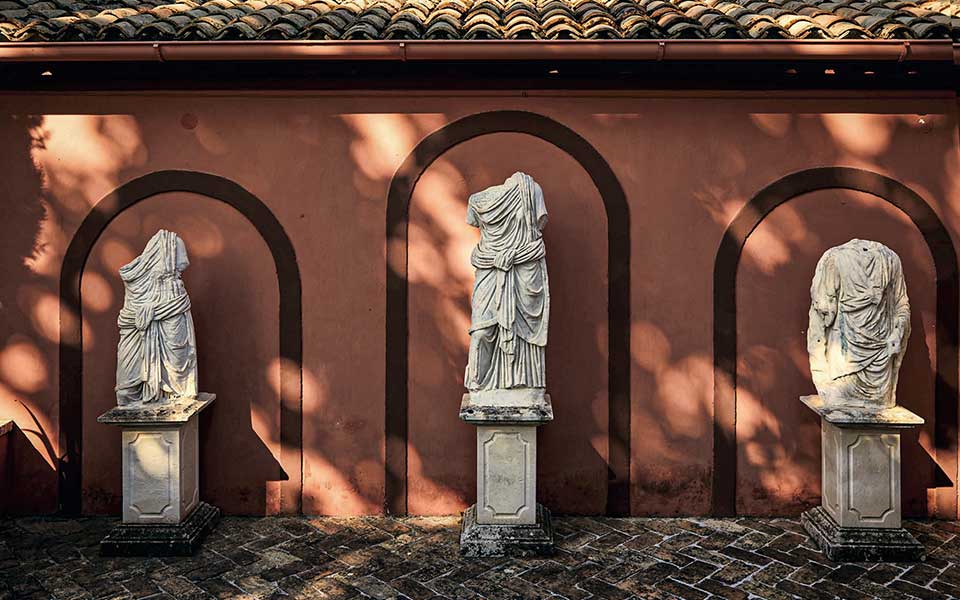
“We live in a time of brutal consumerism. My aim for this book was not to feed the voracious appetites that simply want to devour pretty images of interiors or people’s private spaces, but rather to appeal to readers who aim to discover places like Greece through tasteful houses such as these, full of time and history. It did not matter whether they belonged to the rich or the poor, the unknown or the famous. I selected the ones whose spaces meant a lot to the owners, emotionally as well as symbolically. It is as if they are preserving them for future generations, not necessarily their children or grandchildren, but for those who will come after them, whoever they may be. I am moved by this sense that they are more like keepers than owners in the literal sense of the word. I ended up photographing residences whose owners were truly in love with their homes, and I felt that from the moment I crossed the threshold. I found myself falling in love with the houses too, so an entire world opened before me. I can’t take beautiful photographs unless I feel the charm of both the environment and those who inhabit it.
“I have been very fortunate to have met Greeks such as architect Katerina Tsigarida and her husband, who sent me to Rodakis’ House in Aegina and introduced me to the songs of Sofia Vembo on Spotify. Opening the door of each house, I was not only entering the space, but also the music, the taste, and past of Greece, and that was a unique experience. At the same time, I discovered places such as Ampelakia in Thessaly, and I was left with my mouth hanging open when I learned about the region, the amazing merchants, and the red-colored dye they once exported. Many people ask me slyly which house I would choose out of all of them if it were given to me, so I will answer diplomatically: that of Patrick Leigh Fermor. I say diplomatically because he is no longer alive, so I will not cause offense to the other owners!”

